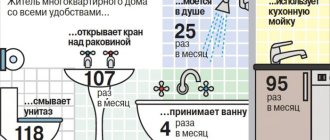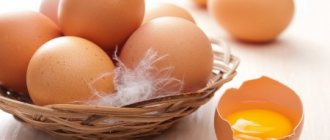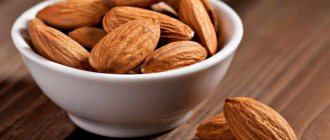We bet that any of you has heard the phrase “to lose weight, you need to eat less” at least once. This has contributed to the emergence of many radical diets, exhausting systems of fasting and nutrition, which are not always effective and often do more harm than good. In fact, it is not so much the frequency of meals that matters, but the quality of food.
In this article we will talk about what to eat, in what quantity and how many times a day to stay healthy and gain a slim figure.
Does the frequency of meals affect our body?
It would seem that the less you eat, the more weight you lose, but the body works differently. When he feels hungry and stressed from lack of food, he begins to accumulate reserves and retain water to use them in case of a critical situation. As a result, this not only provokes the appearance of excess weight, but also leads to further breakdowns, which are accompanied by overeating.
Nutritionists say that the time between meals should be three to five hours. During this period, the contents of the stomach have time to go to the small intestine and a healthy feeling of hunger arises.
In 2010, an 8-week study was conducted in which 16 people took part. They were divided into two groups. One of them ate three times a day, and the other had 3 meals and 3 snacks. In both cases, the total daily caloric intake did not exceed 2931 kcal. As a result, participants in both groups lost 4.7% of body weight and the number of meals did not affect metabolism and fat loss.
So how many times a day do you eat?
In general, it is recommended to eat at least 3 times a day. The calorie content of all meals and snacks depends on many factors, including height, weight, age, gender and activity level. In addition, it is important to monitor the ratio of protein, fat and carbohydrates.
At the same time, you should not avoid new power systems that can become a good alternative. Some of them have proven to be effective ways to keep the body in shape without stressing the body. Among them are fractionated meals and intermittent fasting, which we will talk about in more detail.
How many times a day should (and can) you eat?
One of the most popular myths about food is that eating small meals often helps you lose weight. But, in fact, everything is exactly the opposite. However, not everyone needs to give up snacking. Yes, and you should give up snacks correctly - otherwise breakdowns and suffering cannot be avoided!
EH, ONCE, YES AGAIN, YES MANY, MANY MORE TIMES...
Scientists studied the diet of 50,000 people over 30 years old for 7 years [1]. For those... stoics who regularly ate 1-2 times a day, their weight decreased over the years. The lucky ones who ate 3 times a day remained the same weight. And those unfortunate people who put food in their mouths more than 3 times (once a day!), their weight gradually increased.
Accordingly, scientists have come to a very disappointing conclusion for them (and for us): in order to maintain or reduce weight in the long term, you need to religiously observe a 5-6 hour break between breakfast and lunch. And also - completely refrain from snacking during the day.
Is it possible to give up snacks and not suffer from hunger? Quite! I talk about how to do this correctly in this article.
THE MORE OFTEN THE MORE
The fact that “frequent eaters” are gaining weight is, in general, not surprising. After all, we all enjoy food. Sometimes - much more than from life in general. Therefore, most normal people always find it difficult to stop.
Therefore, even when we seem to be completely satiated, we often cannot resist - and we put an extra piece of happiness in our mouth. And, as a result, we sort out the calories. This is confirmed by the sad diagram of the study [2].
THE MORE OFTEN THE WORSE (AND NOT JUST THE WORSE)?
But what about those lucky women who manage to lose weight by switching to a fractional diet? Do general laws not apply to them?
They are spreading, and how! The fact is that most people who consciously switch to frequent meals do so with the clear goal of losing weight. That is why they begin to control not only the frequency of food intake, but also its quantity and calorie content.
Therefore, even eating 6 times a day, they consciously eat less than those who unconsciously throw food into the firebox as soon as they get hungry (happy, bored, upset - underline as appropriate).
Now you can order a calculation of an individual balanced diet and a step-by-step 21-day weight loss course “Fool your fat” at an amazing price
For only 39 $ instead of 60 $
If you do not need the doctor of our project to comment on the results of your tests, but for us to simply take into account the necessary indications and contraindications when preparing a slimming diet, then order your personal diet
Order a ration
THE RARE - THE MORE OFTEN
I mean, the less often you eat, the more often you feel hungry. Well... let’s say you already knew this without any research.
But the scientists who conducted the study [3] had (strange) doubts about the obviousness of this truth. So they selected a group of volunteers and fed some three and others 17 times a day. Scientists have left no evidence of which group was actually happier. However, I suspect that the group who ate 17 times included the scientists themselves, who fed the study volunteers three times a day with leftovers from their highly learned table.
Sorry - I got distracted. So: blood glucose levels were much more stable in those lucky people who were fed 17 times a day. After all, split meals allow you to reduce jumps in blood sugar (glucose) levels.
This means that those who eat more often not only experience hunger less often. It is also weaker than that of those who eat rarely. Which you already knew, with deep regret.
HUNGRY DEAD-END?
Does the above mean that trying to give up snacks and switch to two or three meals a day is tantamount to constant hunger pangs? Not necessary!
Although - and very likely... for the vast majority of people. After all, the wrong set of foods disrupts the balance of so-called “metabolic hormones” - those that regulate the accumulation and expenditure of energy. This greatly reduces the body's ability to spend stored fat reserves in times of hunger. Which leads to dependence on another source of energy – carbohydrates.
The result is a pathology called “metabolic disorder.” It is expressed in the fact that hunger in a “metabolically upset” person appears just a couple of hours after eating. After all, after his body burns all the carbohydrates received with food, he finds himself in an energy dead end. He is both a person and an organism... And in duet they urgently demand to devour.
After all, according to nature’s sneaky plan, after carbohydrates are used, the body should calmly move on to burning fat (accumulated at the waist). Reducing fat reserves between meals is what the body does with a healthy balance of metabolic hormones. As a result, the owner of such an organism may not experience hunger for many hours.
INDEPENDENCE DAY
“Independence” comes from the word “not to hang up.” After all, the main sign that metabolic hormones are in balance is complete independence from sources of fast carbohydrates: flour, baked goods, sweets and cookies.
This means that if your hormone balance is in order, then you can easily go without sweets and starchy foods for as long as you like. To check, try living for a day only on salads with fish, meat, milk or eggs.
For those who, after half a day, have an irresistible craving for sweets or bread, I have prepared instructions on “How to get the balance of metabolic hormones in order”:
And for those very few who are independent of snacking, I will tell you about those for whom frequent meals are not contraindicated.
PRIVATE OWNERS AND PRIVATE OWNERS
FREQUENT meals may be necessary for some diseases (gastritis, ulcers, gallbladder, etc.). Your attending physician will provide you with a complete list of indications. But he may not tell you about one indication for frequent meals. Frequent snacking can help those who have high “bad” cholesterol - LDL. And also with an excess of total cholesterol and triglycerides in the blood. Collectively this is called dyslipidemia.
These factors mean that your heart is in serious danger. After all, this greatly increases the risk of hypertension, heart attack, stroke, and atherosclerosis.
The results of a study [3] show that people with dyslipidemia should eat more often: snacking helps improve test results. But - not always! I mean, there is always a “but”...
SNACKS WITHOUT DISRUPTIONS
To help bring your “bad” cholesterol into the normal range, snacks should consist of the right foods in the right proportions (just like your main meals).
A proper healthy (or medicinal) diet is a diet that is properly balanced in terms of saturated fat content, glycemic content, and specific calorie content (in general, according to 15 different parameters).
And, most importantly, even to a super-healthy diet you need to switch step by step and slowly. After all, if you rush, the disturbed balance of metabolic hormones will not have time to recover. And around the corner of every proper lunch or dinner, attacks of hunger and evening gluttons will await you.
BIG FOOD BIG SPORT
There is another category of people to whom the general rules of harmful snacking do not apply. These are the heroes of big sports. Frequent meals can improve their results [4]:
- reduce loss of lean muscle mass on a calorie-deficient diet;
- significantly increase lean muscle mass and anaerobic power with a normal diet;
- significantly increase fat burning.
The only thing: even if you go to the gym as many as 3-4 times a week, excuse me, it’s still too early for you to classify yourself as a great athlete (and sportswoman). We are talking specifically about those heroes who dedicated their lives to big-time sports.
NUTRITIONAL FINDINGS
In the meantime, while you are figuring out whether you can (already) be classified as a “big sport”, I will quickly move on to conclusions. And forgive me generously if my main conclusion sounds somewhat ambiguous: not only the size (of portions), but also the frequency (of food) matters (for weight loss):
- For most people, snacking is harmful: it leads to excess weight gain;
- to maintain or lose weight, you need to religiously observe a 5-6 hour break between breakfast and lunch, and also completely refrain from snacking during the day;
- snacks (especially sweet and starchy ones) maintain an “imbalance” of metabolic hormones and lead to dependence on snacks (that is, to hunger 1-3 hours after eating);
- however, eating a properly balanced diet allows you to easily and satisfyingly switch to 2-3 meals a day because it restores the balance of metabolic hormones;
- Snacking regularly (with the right foods) can help bring down your bad cholesterol." And for athletes - increase lean mass and reduce the amount of fat.
VOC...NUTRITIONAL RESEARCH:
- Kahleova H. et al. Meal Frequency and Timing Are Associated with Changes in Body Mass Index in Adventist Health Study 2
- NC Howarth: Eating patterns and dietary composition in relation to BMI in younger and older adults.
- David JA Jenkins: Nibbling versus Gorging: Metabolic Advantages of Increased Meal Frequency.
- Layne E Norton. Meal Distribution of Dietary Protein and Leucine Influences Long-Term Muscle Mass and Body Composition in Adult.
Now you can order a calculation of an individual balanced diet and a step-by-step 21-day weight loss course “Fool your fat” at an amazing price
For only 39 $ instead of 60 $
If you do not need the doctor of our project to comment on the results of your tests, but for us to simply take into account the necessary indications and contraindications when preparing a slimming diet, then order your personal diet
Order a ration
CAUTION: Always consult your doctor when making any changes to your diet or lifestyle, as there may be contraindications in each specific case. The recommendations provided in this article are not a substitute for professional medical care, consultation, diagnosis, advice, or treatment. The author and publication do not accept responsibility for the results of any use of the above information.
Fractional meals
Some nutritionists insist on 3 full meals (350 to 600 calories each) and 1 to 3 snacks throughout the day (150 to 200 calories).
The main feature is that you should not go without food for more than 5 hours. Essentially, you divide your daily calorie intake into more meals. This way, you eliminate the prolonged feeling of hunger, which forces you to choose unhealthy and high-calorie snacks, baked goods and fast food.
This allows you to get enough proteins, fats, carbohydrates, vitamins and microelements without strict restrictions and fasting, and since meals occur at regular intervals, the body receives a signal that it does not need to accumulate extra calories and metabolic processes improve.
Before your next meal, ask yourself the following questions:
- Am I hungry? (If you're not sure, wait 20 minutes and ask yourself again)
- When was your last meal? (If less than three hours, this may be so-called “emotional hunger”)
- Will snacking help me? (To do this, have fruits, nuts or dried fruits on hand)
Let's summarize. How to start eating right? Eat regularly and consume 90% of your calories before 8 pm. Pay attention to eating at regular intervals of 4-5 hours. Make sure they are healthy and nutritious and do not exceed the daily recommended caloric intake. This will help regulate your blood sugar levels and also control your hunger.
Food, I love you!
If anyone in the family has diabetes, these people know how dangerous the condition of hypoglycemia is. It can even cause you to fall into a coma. Hypoglycemia is a decrease in blood sugar levels to 0.5 g or below. Why is this condition dangerous? Of course, if the patient is not given help (sweet water, candy or refined sugar under the tongue), hypoglycemic coma can be fatal. Why is this happening? Because the brain is dying.
To begin with, glucose is necessary for the normal function of cells in the nervous system, as well as muscles and brain. It is she who is the main participant in replenishing energy needs. Glucose is distributed throughout the body through the circulatory system. Normally, its level in the blood varies between 0.8-1.2 g.
Blood is not a storage facility for glucose. The amount that enters the system is consumed in approximately 3-5 minutes. Glucose is “stored” in the liver in the form of glycogen. And the constant function of this organ is its synthesis and consumption.
Glucose enters the body with food. Some of it is consumed, and the other is converted into glycogen and stored in the liver. When the brain receives a signal about a lack of glucose, it is released into the blood. And so on in a circle. This is why it is important to love food and make wise food choices.
Intermittent fasting
Intermittent fasting (fasting diet) is a diet for weight loss that involves periodically refusing to eat. Fasting intervals depend on the individual characteristics of the person. There are options 20/4, 14/10, but 16/8 is considered the most popular and optimal. This means that for 16 hours it is forbidden to consume any food, only drinking water is permissible, and the remaining 8 hours are considered the so-called “food window”, when you do not have to limit yourself in food. You just have to take into account your daily caloric intake and not go beyond it.
Many people are scared by the thought of 16 hours of fasting, but sleep is also taken into account here. That is, you can set a schedule, for example, from 12 noon to 8 pm. In fact, only breakfast is missing from the diet.
The reason for switching to this diet was the discovery of Japanese scientist Yoshinori Ohsumi, who received the Nobel Prize in 2021 for his research into the mechanisms of autophagy. In it, he explained that autophagy is a natural regeneration process that occurs at the cellular level during fasting. Essentially, the body begins to get rid of old cellular components (organelles, proteins and cell membranes) that have fulfilled their role and replaces them with new ones. This helps renew the body and even fight Parkinson's disease, type 2 diabetes and other disorders.
Is breakfast important?
There is a lot of conflicting data, so scientists do not have a consensus. Based on research on intermittent fasting, such breaks in food not only do not harm, but also benefit the body if a person receives all the necessary nutrients and microelements during the eating window.
At the same time, an analysis of 19 studies conducted in Asia and the Pacific region confirmed the link between weight gain and skipping the first meal. And it is connected primarily with the fact that the absence of breakfast provokes a feeling of hunger that remains throughout the day (the hormone ghrelin is responsible for this) and the risk of making a high-calorie and harmful snack increases.
In addition, the quality of food is of great importance. If you have sweet cereals with milk, instant cereals, and sweet pastries for breakfast, then they will do more harm than good. It is worth giving preference to balanced dishes, for example, an omelet with vegetables, whole grain oatmeal with fruits or vegetables, toast with avocado and fish, etc.
Maximum and minimum amount of calories consumed. Daily norm of BZHU
It is important to monitor how much and what enters the body during nutrition. The number of kilocalories, as well as proteins, fats and carbohydrates, plays a role. It is important not to lower these numbers to critically low levels. Insufficient caloric intake threatens:
- slowing metabolism;
- decrease in the body's defenses;
- burning muscle rather than fat tissue;
- decrease in the amount of water in the body.
That is why it is important not only to know how much you need to eat per day in order to lose weight, but also to monitor your food parameters.
To lose weight, it is recommended to consume slightly fewer calories per day than the body uses.
If a person’s metabolism is normal, these numbers will be as shown in the table. Average daily calorie intake for women
| Physical activity level | Age (18-35 years) | Age (35-50 years) | Age (50-70 years) |
| Short | 2000-2500 | 1800-2300 | 1600-2100 |
| Average | 2200-2800 | 2000-2500 | 1800-2300 |
| High | 2500-3100 | 2200-2800 | 2000-2600 |
In addition, compliance with the BZHU norm is important. These substances are very important for the body and play a decisive role. Here's how much protein your body needs per day:
- high physical activity – 1.5 g/1 kg body weight;
- moderate physical activity – 1 g/1 kg;
- low physical activity – 0.7 g/1 kg.
Proteins are an important building material of cells, which is why they are so important. And fats are plastic materials. Even the brain consists of almost 2/3 of them; is it worth talking further about the importance of this substance? As for the norm, the amount of fat consumed should not exceed 1 g and be below 0.5 g per 1 kg of body weight.
You also need to “eat” carbohydrates. How much per day to lose weight, not gain weight? After all, it is because of them, as we know, that a person gets fat. Carbohydrates are fast (sweets, carbonated drinks, fast food) and slow (whole grain products). So, it is better to give preference to the latter. Although the former will be useful for breakfast to quickly replenish the body’s strength after sleep. Carbohydrates are energy. Therefore, their number cannot be completely eliminated or reduced to a minimum. To lose weight, you can use the following scheme:
- in the first month – 5 g/1 kg;
- in the second month - reduce every week by 10% of carbohydrate intake to ultimately reach 2 g/1 kg.
Further, it is recommended to stick to this figure, once a week arranging days when (almost) everything is possible. This will help reduce nervous tension.
Does eating before bed cause weight gain?
People eat at night for a variety of reasons. Often they have nothing to do with hunger. As a rule, this is a fight against boredom and stress.
The main risk associated with eating at night is indigestion or stomach upset. They are accompanied by abdominal pain, nausea, an uncomfortable feeling of fullness, bloating or burning. The reasons for the occurrence may be different: portion sizes are too large, eating quickly, eating fatty, smoked, spicy, sour, etc.
A study published in 2021 in the journal Physiology & Behavior concluded that the timing of meals affects metabolic function. In particular, transferring calories to a later date can change the body's circadian rhythm, and, as a result, lead to excess weight.
But this does not mean that you need to go to bed hungry. Scientists agree that regularly skipping dinner can seriously disrupt your metabolism, affect insulin levels and hormonal levels, so don't give up snacks. Do them wisely and a few hours before bed.
Exceptions to the rules
For the average person, it doesn’t matter how many times a day you eat to lose weight. But it is important for an athlete to know that the more often he eats, the better his body composition becomes. This is evidenced by the same studies conducted with the help of an experimental group. The information is, of course, limited, but this fact is worth thinking about. The benefits of frequent feeding for athletes include reduced loss of lean muscle mass from hypocaloric diets, significant increases in lean muscle mass, anaerobic power and increased fat burning.
What mistakes are encountered in organizing school meals?
One of the most common mistakes in organizing student meals is skipping breakfast. The lack of appetite in the morning is explained by a violation of the daily routine or nutrition: either the child had a heavy late dinner, or he went to bed too late and prefers a few extra minutes of sleep to breakfast.
Another popular mistake is eating mostly processed foods. Despite the convenience of semi-finished products, they contain an excessive amount of salt, animal fats, and flavorings. Such food is not healthy for either children or adults. It is not necessary to completely exclude processed foods from your diet, but it should be based on freshly prepared food.
Another common mistake is the wrong snack: chocolates, candies, waffles, cookies and other high-carbohydrate foods. As a rule, when choosing a snack on their own, children give preference to these foods. Therefore, it is important to explain to your child why such foods are harmful and offer healthy alternatives, such as dried fruits and nuts.
Among other popular mistakes in schoolchildren's nutrition, Rospotrebnadzor names insufficient consumption of fish (it is recommended to eat fish at least twice a week), insufficient consumption of vegetables and fruits (the recommended daily intake is 300 g of fruits and 400 g of vegetables), consumption of energy drinks containing caffeine (negative affect the gastric mucosa and can cause gastritis or ulcers).
How many calories should you consume per day?
The answer to this question depends on the goal being pursued. If you want to lose weight, you need to eat no more than 1800-200 calories per day. This can be achieved with three meals a day, if one serving contains from 600 to 700 kcal. It should contain 70-80 grams of proper (complex) carbohydrates, 30 grams of protein and from 20 to 25 grams of fat.
To gain muscle mass, a man needs at least 2700-2900 kcal per day. This amount of calories can be achieved by eating five or six times a day, with most consumed at breakfast and lunch. The rest of the carbohydrates should be left for the meal after strength training.
conclusions
Many different studies have been conducted, the results of which contradict each other for various reasons. Therefore, it is impossible to give a one-word answer to the question of how often you need to eat to lose weight. However, there is information in the media that split meals five to six times a day are better for weight loss than three meals a day. Both nutritionists and representatives of science talk about this. So why not use this technique if there are benefits for your figure and health?
The conclusion cannot be unambiguous either. On the one hand, at the very beginning of the article, the state of the body in the absence of food or rare nutrition was described in detail. On the other hand, there are studies that have shown that the process of losing weight depends not so much on the frequency of meals, but on the daily calorie content of foods entering the body. You can use this information to your advantage, that is, do what a particular person needs. Unless, of course, he is an athlete.
Many people are also interested in the question of how many days to fast to lose weight. If you don’t want to bring your body to extreme exhaustion, after which, perhaps, treatment will be carried out in a hospital setting, this thought should be thrown out of your head. The lack of nutrients threatens dysfunction of all organs and systems, including deterioration of the condition of hair, skin and nails.
Along with this, there is therapeutic fasting, which has its advantages and disadvantages. It allows you to get rid of harmful substances (waste, toxins), but because of it, your physical condition significantly worsens. It is important to correctly “enter” and “exit” therapeutic fasting. The ideal option is a fasting day once a week, during which you are only allowed to drink the maximum possible amount of water. There are also schemes 12/12, 14/10, 16/8. The first number is the hours of fasting, the second is the time allotted for fractional meals. If you do everything correctly, entering and exiting therapeutic fasting, you can lose more than 10 kg of excess weight in 7-10 days. However, after some time they may return, perhaps in double the equivalent.
The article discussed in detail how often to eat to lose weight. Often - this is every 2-3 hours, dividing meals into 4-7 times. It's easier to lose weight this way because you don't feel hungry. And with this scheme, it is easier for the body to digest incoming food.
What kind of snack can you give your schoolchildren to take with them?
If the school food system is not approved by parents, they may give the child a snack to make up for the missing meal. It is important to think about the packaging of the snack and its composition. Packaging must keep food fresh for at least 4-5 hours; Rospotrebnadzor names a plastic container as the optimal option. As for the snack itself, preference should be given to non-perishable foods. The recommended snack looks like this: fruit, 30-40 g of nuts, a sandwich with cheese or baked meat (the sandwich should be without butter and mayonnaise - they shorten the shelf life of the dish), fresh cucumber or carrot sticks. You should also give your child a drink: optimally - iced tea, fruit juice or still water.









